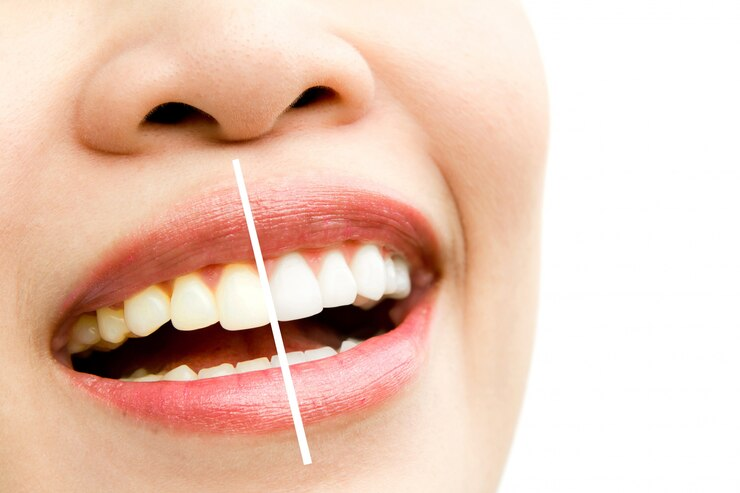Is It Haram to Do Laser Hair Removal? Find Out Now!
Laser hair removal has gained immense popularity in recent years, offering a convenient and effective solution for those looking to reduce unwanted hair. However, as with many beauty treatments, questions about the permissibility of such procedures within Islamic teachings arise. This article aims to explore whether Is it Haram to Do Laser Hair Removal? in Islam, considering various perspectives, interpretations, and cultural contexts.
Understanding Laser Hair Removal
Before delving into religious interpretations, it's essential to understand what laser hair removal entails. This procedure uses concentrated light beams to target and destroy hair follicles, preventing future hair growth. It’s considered a long-term solution compared to traditional methods like shaving, waxing, or plucking.
The technology behind laser hair removal has evolved significantly, allowing for safer and more effective treatments. Most procedures involve a series of sessions, depending on the individual’s hair type and the treatment area. The procedure is usually quick, with minimal discomfort, and has gained a reputation for being relatively painless.
Islamic Perspectives on Body Modification
To determine whether laser hair removal is haram, one must first consider the broader Islamic principles regarding body modification and personal grooming. Islamic teachings emphasize the importance of modesty, cleanliness, and maintaining one's natural form. The Quran and Hadith contain guidelines about how Muslims should care for their bodies, including grooming practices.
Natural Appearance
In Islam, there is an appreciation for natural beauty. Many scholars argue that altering one's appearance in a way that goes against one's natural state may be frowned upon. However, this perspective often depends on the intent behind the modification. If the aim is to enhance one's appearance for personal satisfaction or to meet societal standards, the act may be viewed differently than if it is done for the sake of health or well-being.
The Role of Intention (Niyyah)
In Islam, the concept of intention (niyyah) plays a critical role in determining the permissibility of actions. If a person chooses to undergo laser hair removal with a sincere intention—such as to enhance cleanliness, hygiene, or self-confidence—some scholars may consider it permissible. The act becomes less about vanity and more about personal care and well-being.
Scholarly Opinions on Laser Hair Removal
The opinions of Islamic scholars vary widely regarding laser hair removal. Some scholars support the practice, while others advise against it.
Scholars in Favor
Medical and Health Considerations: Many scholars recognize the medical benefits associated with laser hair removal. Unwanted hair can cause discomfort or hygiene issues, particularly for women. If laser hair removal helps alleviate these concerns, it may be deemed permissible.
Enhancing Personal Hygiene: Some scholars argue that maintaining cleanliness and personal hygiene is encouraged in Islam. If laser hair removal contributes to this objective, it can be considered an acceptable practice.
Prevention of Harm: In Islam, any action that aims to prevent harm is often viewed favorably. If individuals experience significant psychological or emotional distress due to unwanted hair, laser hair removal might be seen as a means to alleviate that suffering.
Scholars Against
Tampering with Allah's Creation: Some scholars assert that laser hair removal constitutes an unnecessary alteration of Allah's creation. They argue that Muslims should accept their natural state, and any form of body modification is against the principles of submission to God's will.
Potential Risks: Some scholars emphasize the potential risks associated with laser treatments, including skin reactions or other side effects. They argue that engaging in such procedures can be viewed as putting oneself in harm’s way, which Islam discourages.
Societal Pressures: Critics of laser hair removal often highlight the influence of societal beauty standards that can lead individuals to feel pressured to undergo treatments that may not align with Islamic values of modesty and acceptance of one's natural appearance.
Cultural Contexts and Interpretations
The permissibility of laser hair removal may also depend on cultural contexts and societal norms. In some cultures, there may be a greater acceptance of beauty treatments and body modifications, while in others, such practices may be viewed more critically.
Personal Choice and Autonomy
Ultimately, the decision to undergo laser hair removal should be left to the individual, considering their beliefs, values, and personal circumstances. In Islam, individuals are encouraged to seek knowledge and guidance, which can lead to informed decisions about their bodies. Consulting with knowledgeable scholars or trusted community leaders can help provide clarity on this matter.
Engaging with Community Perspectives
Many Muslim women share their experiences and thoughts on laser hair removal in community forums, mosques, and social media platforms. Engaging with these discussions can offer insights into how various communities perceive the practice and its alignment with Islamic values.
The Importance of Education
Education plays a vital role in making informed decisions about body care and modification. Muslims considering laser hair removal should educate themselves about the procedure, its effects, and the cultural and religious implications surrounding it. Understanding the religious context can aid individuals in navigating their choices and seeking guidance that aligns with their beliefs.
Seeking Knowledge from Reliable Sources
Muslims are encouraged to seek knowledge from reliable sources, including scholars, books, and reputable online platforms. Consulting with qualified professionals can also provide insights into the safety and efficacy of laser hair removal.
Balancing Modernity and Tradition
In today’s fast-paced world, many Muslims grapple with balancing modern practices with traditional values. Laser hair removal, as a modern beauty treatment, may evoke discussions on how individuals can uphold their faith while embracing contemporary trends. Striking this balance requires personal reflection and understanding of one's values.
Conclusion: A Personal Journey
In conclusion, whether laser hair removal is considered haram or permissible varies among scholars, cultures, and individuals. The diversity of opinions highlights the importance of personal context and intention.
For many Muslims, the decision to undergo laser hair removal should be approached thoughtfully, considering both religious teachings and personal needs. Engaging with knowledgeable sources and seeking community perspectives can guide individuals in making informed choices that align with their faith and personal beliefs.
As with many aspects of life, the journey toward understanding and decision-making in the realm of body care and modification is deeply personal. It invites individuals to reflect on their values, seek knowledge, and make choices that resonate with their beliefs and circumstances.




Comments
Post a Comment